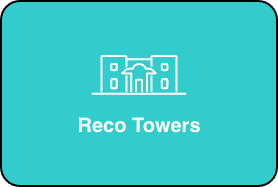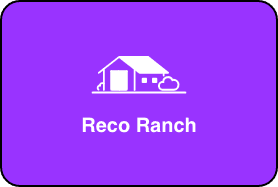2024 Guide to Alcoholism Recovery in South Florida


Embarking on the Recovery Journey in South Florida
Understanding Alcoholism as a Disease
Alcoholism is recognized as a chronic disease by the medical community, characterized by an inability to control or cease alcohol use despite adverse health, social, or legal consequences. It affects the brain’s structure and function, leading to a dependency that can be challenging to overcome without proper support. Recognizing alcoholism as a disease is vital, it underscores the necessity of a comprehensive treatment approach that addresses the physical, psychological, and social aspects of addiction. Understanding alcoholism as a chronic illness provides the foundation for compassionate, effective recovery strategies, emphasizing the fact that recovery is a journey rather than a destination.
The Importance of Choosing the Right Sober Living Environment
Choosing the right sober living environment is crucial in the recovery journey. A supportive, stable, and substance-free environment can significantly enhance the effectiveness of recovery efforts. Sober living homes offer more than just a place to stay, they provide a community and framework for individuals in recovery to develop the skills and habits needed for a sober life. Factors to consider when choosing a sober living home include the level of support provided, the types of programs and activities available, and the home’s location about ongoing treatment services and community resources. Being in a positive and healing environment, like the one provided by sober living in Delray Beach, aids significantly in transitioning to a sober lifestyle.
RECO Institute’s Approach to Recovery
RECO Institute, located in the heart of South Florida, offers a holistic and personalized approach to recovery. Integrating the principles of sober living with comprehensive addiction treatment programs, RECO is dedicated to facilitating a smooth transition into sobriety for both men and women. The RECO Institute’s sober living options are designed to provide a structured yet flexible environment that encourages personal growth, self-discovery, and the development of healthy coping mechanisms. Through a combination of therapeutic activities, peer support, professional guidance, and access to outpatient services, RECO Institute’s approach aims to address the underlying causes of alcoholism and equip individuals with the tools needed for successful, long-term recovery.
The Role of Sober Living Homes in Alcoholism Recovery
Defining Sober Living and Its Purpose
Sober living homes play an indispensable role in the continuum of care for individuals recovering from alcoholism. These residences are designed to provide a bridge between inpatient treatment and a return to normal life, offering a structured, substance-free environment that promotes sobriety and personal growth. At the core of sober living is the purpose of supporting residents in their transition to a self-sufficient, sober lifestyle, minimizing the risk of relapse through peer support, accountability, and a stable living environment. Living in such a home allows individuals to develop coping strategies, rebuild their life skills, and strengthen their recovery foundation without the immediate pressure of unsupervised independence. Transitional housing for sobriety provides a crucial step in the journey towards long-term sobriety by creating a balance between supervision and freedom, enabling residents to apply the lessons learned in treatment to real-world scenarios.
The Difference Between Sober Living Homes and Halfway Houses
While both sober living homes and halfway houses aim to facilitate the transition to a sober life, significant differences exist between the two. Sober living homes typically operate privately and are self-sustaining through resident fees, offering more autonomy and a less restrictive environment. Residents are encouraged to stay as long as they need, assuming they abide by house rules and remain sober, which supports a more individualized recovery journey. On the other hand, halfway houses often have a connection to the legal system or government-funded programs, resulting in more regulations and a set duration of stay. This distinction highlights the importance of choosing a recovery housing option that best aligns with one’s personal needs and recovery stage, acknowledging that the more customizable support and lifestyle flexibility of sober living homes can be particularly conducive to lasting sobriety.
Sober Living in Delray Beach: A Premier Destination
Delray Beach, Florida, has emerged as a premier destination for sober living, primarily due to its vibrant recovery community and abundance of resources designed to support individuals in recovery. The scenic beauty and tranquil atmosphere of Delray Beach make it an ideal setting for healing and personal development. Sober living homes in this area, such as those offered by the RECO Institute, provide not only a safe and supportive environment but also access to a wide range of activities and programs that promote a sober lifestyle. From group meetings and one-on-one counseling to wellness and recreational activities, these residences facilitate a well-rounded recovery experience. The emphasis on community and peer support in Delray Beach’s sober living homes further enriches the recovery journey, offering a sense of belonging and a network of like-minded individuals committed to sobriety. As a result, choosing to recover in Delray Beach means immersing oneself in an environment where every aspect is tailored to support long-term recovery and personal growth, solidifying its status as a top choice for those seeking a new beginning in sobriety.
Comprehensive Addiction Treatment Programs in Florida
Outpatient Programs vs. Residential Treatment
When exploring alcoholism recovery options in South Florida, it’s essential to understand the differences between outpatient programs and residential treatment. Outpatient programs offer a level of flexibility that allows individuals to maintain their daily routines, such as work or school while receiving treatment. RECO Institute’s outpatient services are tailored to provide comprehensive support without the need for a residential stay, making them an ideal choice for those with commitments or in the later stages of recovery. Conversely, residential treatment offers a more immersive recovery experience, with 24/7 support and a structured environment designed to focus entirely on the individual’s healing process. Choosing between these options depends on the severity of the addiction, the individual’s circumstances, and their stage in the recovery journey.
Integrating 12-Step Meetings into Sober Living
Participation in 12-step meetings is a cornerstone of many recovery programs due to the structure, peer support, and proven effectiveness in helping individuals maintain sobriety. Sober living homes, including those affiliated with the RECO Institute, strongly encourage integration with Alcoholics Anonymous sessions and other 12-step programs as a part of their recovery model. This integration ensures residents have access to a broader recovery community outside the immediate sober living environment, offering diverse perspectives and experiences that enrich the recovery journey. Regular attendance at these meetings empowers residents to develop a supportive network of peers who are also committed to sobriety, enhancing the sense of collective strength and accountability.
Specialized Treatment Options at RECO Institute
Understanding the diverse needs of individuals in recovery, the RECO Institute offers a variety of specialized treatment options that cater to the unique aspects of each person’s journey toward sobriety. These options range from trauma-informed care, which addresses the underlying emotional and psychological issues related to addiction, to gender-specific programs that provide a safe space for men and women to explore issues related to their recovery more openly. Additionally, the RECO Institute team in Delray Beach emphasizes holistic approaches, integrating physical wellness, mental health therapies, and creative expressions like art and music therapy into the recovery process. This comprehensive and customized approach ensures that all aspects of an individual’s well-being are addressed, laying a solid foundation for long-term recovery and personal growth.


Creating a Supportive Environment for Recovery
The Importance of Peer Support and Group Activities
The journey to sobriety is seldom a path one walks alone. The importance of peer support and group activities in the recovery process cannot be overstated. Engagement within a community of those who share similar experiences and struggles provides not only a sense of belonging but also a forum for the exchange of coping strategies and encouragement. The RECO Institute team in Delray Beach understands that recovery thrives in an environment where individuals feel understood and supported, which is why group activities and peer-led discussions form a central part of their program.
Group activities, whether they are therapeutic sessions, recreational outings, or skill-building workshops, encourage social interaction and rebuild the trust and social skills often eroded by substance use disorders. Participation fosters a collective sense of purpose and achievement, vital for rebuilding self-esteem and confidence. As the peer support impact on sobriety success is profound, embedding these elements into the fabric of sober living programs ensures residents not only recover but thrive in sobriety.
Role of House Managers in Maintaining a Sober Residence
The backbone of any successful sober living residence is its management team, with house managers playing a pivotal role. These individuals are often in recovery themselves, offering a unique perspective that resonates deeply with residents. Their responsibilities are manifold, encompassing both the logistical aspects of managing the residence and providing emotional and social support to those under their care.
House managers ensure the house’s rules are adhered to, promoting a stable and conducive environment for recovery. Their role in organizing house meetings and coordinating with external support services is crucial in maintaining the structure and discipline necessary for a successful recovery journey. However, their most significant impact often comes from the day-to-day interactions with residents, offering guidance, listening without judgment, and sharing their own stories of recovery. This personalized attention helps solidify the sober support network that is essential to long-term sobriety.
Building a Recovery Community in South Florida
South Florida has distinguished itself as a beacon for those seeking recovery, not just because of its scenic beauty and tranquil environment, but due to the vibrant and inclusive recovery community it hosts. Building a recovery community involves more than just establishing sober living residences, it requires the creation of a comprehensive ecosystem that supports sobriety in all its forms. This encompasses everything from outpatient programs and support groups to sober-friendly social gatherings and recreational activities.
In Delray Beach, the recovery community is bolstered by the presence of institutions like RECO Institute, which not only provide sober living accommodations but actively contribute to the community through events, outreach, and continuous support. This community-driven approach ensures that individuals in recovery have access to a broad spectrum of resources and a network of support that extends beyond the walls of any single institution. The presence of alcohol abuse support networks and services geared towards assisting individuals at all stages of their recovery journey fosters an environment where long-term sobriety can be achieved and maintained.
Navigating Through the Challenges of Early Recovery
Dealing with Cravings and Triggers
Cravings and triggers are significant obstacles in early recovery from alcoholism, as they can provoke intense desires to revert to old habits. Recognizing the signs of craving and understanding the triggers-whether emotional, environmental, or social critical. Strategies such as mindfulness, engaging in alternative activities that occupy the mind and body, and seeking immediate support from peers or mentors can be effective in managing these moments. Education on coping mechanisms plays a vital role, with many sober living programs, including those offered by the RECO Institute, incorporating cognitive-behavioral techniques to help individuals navigate through these challenges successfully. Building a toolkit of personalized strategies ensures that when cravings or triggers appear, individuals are not defenseless, reinforcing their capacity for resilience and self-control in their recovery journey from alcoholism.
The Impact of a Supportive Environment on Relapse Prevention
The environment surrounding an individual in recovery can dramatically influence their ability to remain sober. A supportive living environment, such as the sober living homes in South Florida provided by the RECO Institute, offers a stable foundation essential for relapse prevention. In these settings, residents are surrounded by peers who share similar experiences and struggles, creating a communal atmosphere of understanding and encouragement. The structure of sober living homes, combined with rules that promote healthy living and accountability, helps to minimize the risk of relapse. Additionally, the availability of continuous support through group meetings and access to professional assistance ensures individuals have the resources to confront and overcome potential relapse triggers. The peer support impact on sobriety success has been well-documented, illustrating how a community of like-minded individuals can provide the strength and motivation needed to stay the course.
Success Stories of Long-term Recovery Strategies
Long-term recovery from alcoholism is marked by ongoing commitment, adaptability, and the utilization of an extensive support network. Success stories often highlight the pivotal role of transitional sober housing in providing a safe space where individuals can strengthen their sobriety skills. RECO Institute’s alumni program shines a light on the transformative power of comprehensive recovery plans, which include therapy, peer support, and engagement in sober community activities. These narratives underscore the advantages of embracing a sober lifestyle and the effectiveness of structured sober living programs and ongoing outpatient care in achieving sustained recovery. Individuals who partake in sober life community activities in Delray Beach often share how these experiences helped solidify their commitment to sobriety, illustrating the multifaceted approach needed for enduring success. Through perseverance, support, and engagement in a recovery-oriented lifestyle, many find a new lease on life, free from the constraints of alcohol addiction.
Transitional Sober Housing: Bridging the Gap
The Path from Detox to Long-term Sober Living
The journey of recovery from alcoholism is multifaceted, starting with detoxification, where the body is purged of alcohol, to achieving long-term sobriety-an ongoing and dynamic process. Transitioning from detox to a stable sober living environment is a critical step, often fraught with challenges and vulnerabilities. This delicate phase demands a supportive and structured environment to navigate successfully. Transitional sober housing emerges as a pivotal bridge during this period, offering a buffer between the intensity of detox and the relative autonomy of long-term sober living. These residences are designed to uphold the balance between supervision and independence, providing residents with a supportive environment that fosters recovery while allowing them the space to relearn and practice life skills in a sober context.
Benefits of Transitional Housing Programs
Transitional housing programs go beyond merely providing a roof over one’s head. They embody a holistic approach to recovery, emphasizing the restoration of physical health, mental well-being, and social skills eroded by prolonged alcohol abuse. The advantages of transitional sober housing programs are manifold. Residents benefit from a structured schedule that includes therapy sessions, 12-step meetings, and household responsibilities, which instill a sense of discipline and purpose. Furthermore, these programs offer a sense of community and peer support, critical components in the journey to recovery. Residents live among peers who share similar experiences and goals, providing mutual support and understanding that can be profoundly healing. Additionally, transitional housing acts as a safety net, offering a level of accountability and guidance that significantly reduces the risk of relapse during this vulnerable phase.
How RECO Institute Facilitates a Smooth Transition
RECO Institute stands out in its commitment to providing comprehensive support to individuals transitioning from detox to sober living. Their approach is characterized by a deep understanding of the intricacies involved in early recovery. RECO facilitates a smooth transition by integrating clinical care with real-life experiences, thereby ensuring that recovery principles are not just learned but lived. Each resident’s journey is personalized, taking into account their unique challenges, goals, and progress. This customization extends to the range of therapies and activities available, from traditional counseling and group sessions to alternative therapies aimed at holistic healing. By fostering a culture of empathy, discipline, and self-discovery, RECO Institute ensures that residents not only navigate the transition successfully but also lay a strong foundation for a sober, fulfilling life ahead.


Living the Sober Life: Activities and Engagement
Sober Activities Offered by RECO Institute
RECO Institute believes that a fulfilling sober life extends beyond the boundaries of traditional recovery programs. Recognizing the importance of engaging, enjoyable activities in promoting long-term sobriety, RECO offers a plethora of options designed to enrich the lives of its residents. From outdoor adventures that take advantage of South Florida’s stunning natural landscape to creative workshops that encourage artistic expression, there’s something for everyone. Physical wellness activities, such as yoga and team sports, are particularly emphasized for their dual benefits of improving health and fostering a sense of camaraderie among participants. These activities not only offer a constructive outlet for the energies and emotions of recovery but also help to reinforce the habits and lifestyle changes that sustain sobriety.
Engaging with the Sober Life Community in Delray Beach
Delray Beach, renowned for its warm, welcoming recovery community, serves as an ideal backdrop for individuals seeking a fresh start in sobriety. The RECO Institute taps into this vibrant community, encouraging residents to engage with local events, support groups, and volunteer opportunities. Participation in community activities not only aids in building a supportive network but also assists individuals in integrating into a wider society that values sobriety and healthy living. The immersive experience in Delray Beach’s sober community, often described as a cornerstone of the RECO recovery journey, enhances residents’ commitment to sobriety by connecting them with peers and mentors who share similar paths and by fostering an environment where individuals can thrive without the influence of alcohol.
The Role of Alumni Programs in Sustained Sobriety
The RECO Institute’s commitment to recovery does not end when residents move on from sober living residences. Through its robust alumni program, RECO continues to support former residents in their ongoing journey of sobriety. Alumni activities, ranging from social gatherings and community service projects to sober lifestyle apparel, available through sober lifestyle apparel, ensure that individuals remain connected to the supportive network they have come to rely on. These programs play a critical role in preventing relapse by reinforcing the principles and practices of a sober life, offering continual encouragement, and reminding alumni that they are not alone in their commitment to sobriety. By celebrating achievements, offering assistance during challenging times, and providing avenues for alumni to give back to the recovery community, RECO’s alumni programs underline the institute’s holistic approach to long-term recovery.
Understanding the Importance of Long-term Recovery Planning
Setting Goals for Long-term Sobriety
Long-term recovery from alcoholism is a journey that requires not just a commitment to stop drinking but also a strategic plan for maintaining sobriety. Setting goals for long-term sobriety is crucial for individuals recovering from alcohol addiction. These goals should be specific, measurable, achievable, relevant, and time-bound (SMART). For example, setting a goal to attend a certain number of sober living community meetings each month or to engage in regular wellness activities can provide structure and purpose. Goals may also include personal ambitions like pursuing new educational opportunities, rekindling family relationships, or advancing in one’s career. By setting and working toward these goals, individuals in recovery can find motivation and a sense of progress that reinforces their sobriety.
The Importance of Aftercare and Continuous Support
Aftercare and continuous support play pivotal roles in safeguarding the achievements made during the early stages of recovery. These services, which can include ongoing therapy sessions, support group meetings, and participation in sober living community events, are fundamental in preventing relapse. Continuous support, particularly through structured programs like those offered by RECO Institute, provides individuals with a safety net during vulnerable moments. Engaging with Delray Beach intensive outpatient services can enhance the aftercare experience, offering structured therapy while allowing individuals to apply their recovery skills in real-world settings. The ongoing connection with counselors, peers, and mentors through aftercare programs ensures that individuals have access to the resources and guidance they need to navigate the complexities of life without reverting to old habits.
Finding Personal Fulfillment in Recovery
The final cornerstone of sustained sobriety is finding personal fulfillment beyond the absence of alcohol. Engagement in activities that promote physical health, mental well-being, and emotional growth is essential. This might involve rediscovering old hobbies or exploring new interests that contribute to a sense of joy and accomplishment. Additionally, giving back to the recovery community or other philanthropic efforts can offer a profound sense of purpose and fulfillment. Many find that mentoring those who are newly sober reinvigorates their own commitment to recovery and provides a unique sense of satisfaction. Ultimately, finding personal fulfillment in recovery means crafting a life that is not only sober but also enriched with meaning, purpose, and happiness.
Finding the Right Sober Living Residence for You
What to Look for in Sober Living Homes
When venturing into the sober living landscape, pinpointing a residence that aligns with your individual recovery needs is essential. Key aspects such as location, program structure, peer community, and support services demand careful consideration. The ideal sober living home should facilitate a seamless transition into sober living by promoting a balance between independence, accountability, and community support. Another crucial factor is the environment should nurture recovery, fosters personal growth, and reduces potential triggers that could jeopardize sobriety. Additionally, accessibility to ongoing outpatient programs and recovery-based activities significantly contributes to the enrichment of the sober living experience. It’s prudent to navigate this search with clarity on priorities, ensuring the chosen home enhances and sustains your path to long-term recovery.
How RECO Institute Stands Out Among Sober Living Residences in Florida
RECO Institute distinguishes itself in the realm of sober living through its comprehensive approach and commitment to personalized care. Located in Delray Beach, Florida, RECO is renowned for offering a supportive environment that bridges the gap between intensive treatment and the return to day-to-day life. One of its standout features is the integration of RECO’s Intensive Outpatient Program (IOP), allowing individuals to continue their recovery while transitioning into sober living. The institute’s facilities boast modern amenities and a welcoming atmosphere, contributing to an optimal recovery experience. Moreover, the established community within and around RECO Institute provides an invaluable network of support, embodying the essence of solidarity and mutual growth. These distinctive attributes set RECO apart, making it a premier choice for those seeking a nurturing, effective sober living solution in South Florida.
Steps to Joining the RECO Institute Sober Living Community
Embarking on your journey with RECO Institute begins with a straightforward yet thorough process designed to align your needs with the optimal sober living scenario. Initially, prospective residents are encouraged to engage with RECO’s team through consultation-providing an opportunity to discuss personal recovery goals, experiences, and any specific requirements. This initial dialogue ensures a tailored fit within the RECO community. Following this, a review of available accommodations and program options allows individuals to make informed decisions about their recovery path. Importantly, the RECO Institute also assists with finding sober living accommodations near you, enabling a smoother transition into the program. The final steps include an assessment of financial arrangements and a comprehensive onboarding process, setting the stage for successful integration into RECO’s supportive, dynamic sober living community.
Pathways Forward: Embracing a Future Free of Alcohol
Recovery from alcoholism is not a linear journey, it’s a transformative process that evolves. As individuals progress through recovery, looking ahead and planning for a future free of alcohol becomes not only a possibility but a realistic goal. The pathway forward involves continuous education, support, and personal development, each contributing to a healthier, sober lifestyle.
Empowerment Through Recovery Education
Recovery education plays a critical role in empowering individuals with the knowledge and tools necessary to sustain sobriety. This education encompasses understanding the nature of addiction, strategies for handling triggers and cravings, and learning how to navigate the complexities of life without reliance on alcohol. Recognizing the value of ongoing learning, the RECO Institute encourages participation in workshops, seminars, and courses that are designed to fortify the recovery process.
These educational opportunities not only broaden an individual’s understanding of alcoholism and recovery but also equip them with practical skills for managing stress, building healthy relationships, and making informed decisions. The more knowledge an individual possesses about their condition and recovery, the more empowered they become in their journey towards sobriety. This empowerment is crucial for building self-confidence and a sense of control over one’s life, key factors in preventing relapse.
The Role of Community Support in Sustaining Recovery
The importance of community support in sustaining recovery cannot be overstated. A strong, supportive network provides individuals with a sense of belonging, encouragement, and a safe space to share experiences and challenges. In South Florida, the recovery community is particularly vibrant, offering numerous avenues for support and engagement. From 12-step meetings to sober gatherings and community service projects, opportunities to connect with others who are committed to sobriety are abundant.
RECO Institute emphasizes the value of engaging with the sober community in Delray Beach, facilitating introductions to local support groups and events. This engagement helps to reinforce the recovery lessons learned in treatment and sober living environments, providing real-world application and reinforcement. The presence of peers who understand the journey of recovery adds an invaluable layer of support, making it easier to navigate the ups and downs of sobriety.
Looking Ahead: What to Expect from Your Recovery Journey
As individuals embark on their recovery journey, it’s essential to set realistic expectations and remain open to the ongoing nature of recovery. Sobriety is not a destination but a lifelong journey marked by personal growth, discovery, and occasional challenges. Anticipating the road ahead involves recognizing that while setbacks can occur, they do not define the journey or the destination. Armed with the tools, education, and support gathered along the way, individuals can navigate these challenges successfully.
Looking ahead, it’s important to focus on the goals set during the recovery planning process, whether they involve personal achievements, fostering relationships, or giving back to the community. RECO Institute remains a steadfast ally in this journey, providing continuous support through its alumni program, sober living environments, and ongoing education opportunities. By staying connected to the recovery community and embracing the principles of sobriety, individuals can look forward to a future that is not only alcohol-free but filled with opportunities for fulfillment and joy.
In navigating the complexities of recovery, understanding the Florida Marchman Act details can provide additional support and resources for individuals and their families, offering a legal mechanism to assist in obtaining treatment for substance use disorders. This knowledge, combined with the comprehensive support and resources offered by the RECO Institute, paves the way for a successful transition into a sober lifestyle, empowering individuals to embrace a future free of alcohol with confidence and optimism.
Frequently Asked Questions
Question: What makes RECO Institute’s sober living in Delray Beach stand out for alcoholism recovery in South Florida?
Answer: RECO Institute’s sober living in Delray Beach stands out as a premier choice for alcoholism recovery due to its comprehensive approach that combines transitional sober housing with personalized addiction treatment programs. Located in the heart of South Florida, RECO offers a supportive environment that is specifically tailored to foster long-term recovery. Our residences not only provide a stable environment but also ensure residents have access to a vibrant recovery community, peer support, and a variety of sober living programs designed to encourage personal growth and sobriety. With our hands-on approach, modern facilities, and commitment to integrating residents into a supportive recovery lifestyle, RECO Institute sets a high standard for sober living homes in South Florida.
Question: Can you provide more detail on the outpatient programs for alcoholism available at RECO Institute in the context of the ‘2024 Guide to Alcoholism Recovery in South Florida’?
Answer: In the ‘2024 Guide to Alcoholism Recovery in South Florida’, RECO Institute’s outpatient programs play a critical role in providing flexible, yet comprehensive treatment solutions for those battling alcoholism. Visit our Experience the Best Outpatient Programs in Florida page for more details. Our outpatient services are meticulously designed to allow individuals to continue with their daily lives while receiving the support and therapy they need in their recovery journey. These programs include a diverse range of therapeutic modalities, group therapy sessions, and individual counseling, all tailored to meet the unique needs of each participant. The integration of these services with our sober living facilities ensures that individuals in any stage of recovery can find a program that aligns with their recovery goals and lifestyle, promoting sustained sobriety and personal development.
Question: How does the RECO Institute ensure a supportive environment in its sober living residences?
Answer: At RECO Institute, we believe that a supportive environment is key to successful recovery from alcoholism. Our sober living residences in Delray Beach are structured to foster a community-oriented atmosphere where residents can find mutual support, accountability, and encouragement. This is achieved through shared living spaces that promote interaction and camaraderie, regular house meetings led by experienced house managers, and various group activities and outings that strengthen bonds among residents. Furthermore, we emphasize peer support and encourage involvement in group therapy sessions and 12-step meetings within the local recovery community. Our approach ensures that each resident feels part of a supportive, sober community, making their recovery journey less isolating and more empowering.
Question: Regarding the transitional sober housing offered by RECO Institute, what are the benefits and how does it facilitate a smooth transition into sober living?
Answer: Transitional sober housing at RECO Institute is designed to bridge the gap between intensive rehab treatment and the return to everyday life, providing a phased approach to recovery. This form of housing offers numerous benefits, including a structured yet flexible living arrangement that prepares residents for the independence of long-term sobriety. Our transitional programs include continuous access to therapy and counseling, accountability through regular meetings and check-ins with house managers, and engagement with sober activities and the Delray Beach recovery community. Learn more about our supportive environment on the Secure Your Recovery Spot by Checking Availability on the RECO Residences page. This strategic combination of stability, support, and gradual reintegration into social and professional life ensures that residents can steadily build their confidence and coping skills in a real-world setting while maintaining a clear focus on their sobriety goals.
Question: What strategies does the RECO Institute employ to prevent relapse and support long-term recovery?
Answer: To prevent relapse and support long-term recovery, the RECO Institute employs a multi-faceted approach focusing on personal development, community involvement, and continuous engagement with recovery processes. Our strategies include individualized treatment planning that addresses the underlying causes of addiction, the encouragement of active participation in 12-step programs and sober community events, and the provision of ongoing support through our comprehensive outpatient services. Additionally, our experienced team facilitates workshops and seminars aimed at building life skills and resilience, vital for navigating life’s challenges without alcohol dependence. By fostering a holistic and engaging recovery environment, RECO Institute equips individuals with the tools and community support essential for sustaining a sober and fulfilling lifestyle. More information can be found on our Strengthening Recovery with Structured Sober Living page.















